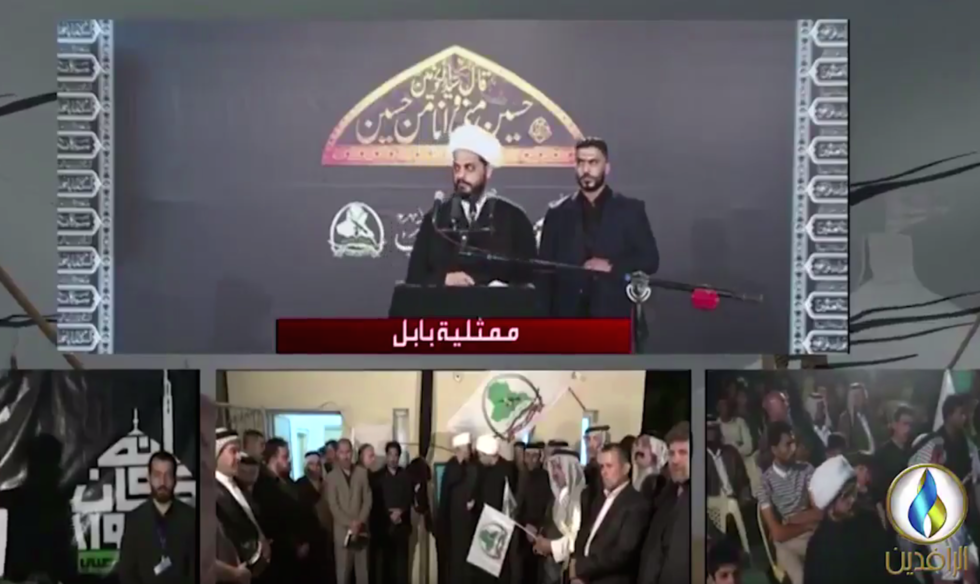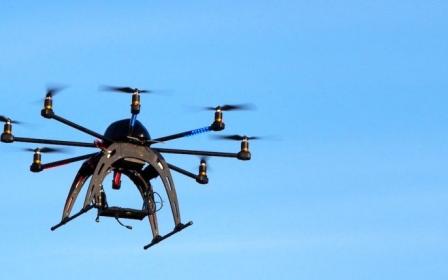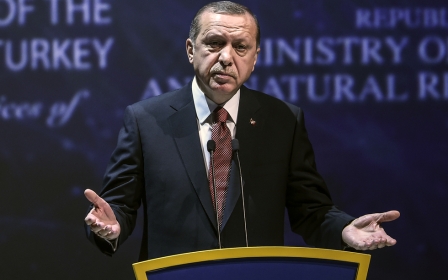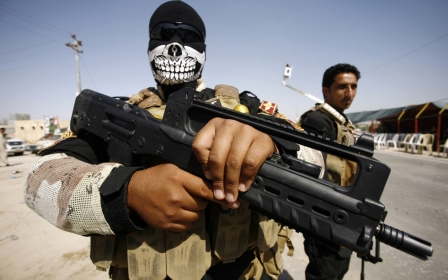Shia militia leader vows 'revenge for Hussein' in Mosul battle

A leading government-backed militia in Iraq has described the assault on the Islamic State (IS) group stronghold of Mosul as "revenge for the killing of Imam Hussein", referring to the grandson of the Prophet Muhammad.
Coming during the festival of Ashura, at which Shia Muslims commemorate the killing of Hussein by the armies of Umayyad caliph Yazid, the comments by Qais al-Khazaali, leader of Asaib Ahl al-Haq militia, drew historic parallels with the long-awaited assault on the last stronghold of IS in Iraq.
"The liberation of Mosul will be a revenge for the killing of Imam Hussein and preparation for a state of divine justice," said Khazaali in the video.
Analyst Hassan Hassan described the comments as "sectarian" on Twitter and the video is likely to again raise concerns that Shia-dominated militias could indiscriminately carry out human rights violations against the population of the Sunni-majority city.
The government-funded militias, known as the Popular Mobilisation Units (PMUs), have repeatedly tried to portray themselves as opposed to sectarianism and inclusive of different religious groups.
An animated video released on Sunday by the PMU media unit attempted to stress their inclusivity by showing them as protectors of Christians.
There are a number of Sunni PMUs and at least one Christian militia, and some have a mixture of sects.
Despite this, there have been allegations of collective punishment and torture by various PMUs in Iraq, some of which are linked to Iran.
Speaking at the Royal United Services Institute in September, the Iraqi foreign minister, Ibrahim al-Jafaari, attempted to allay fears that the push on Mosul would alienate the local populace or that the forces involved would pursue their own agendas.
“I do not deny that the actions by one person here or there or a small group of people here or there," he said, adding that "the Sunni and Shia community are well and have the trust of each other.”
He said that the "military operation is based on Iraqi forces" and not driven by a religious or separatist agenda.
“I lived many years in... Mosul and I realised from being close how the Mosul community deals with other nationalities and other entities."
The Ashura pilgrimage draws huge numbers of faithful, with Staff Major General Qais Khalaf Rahaima, the head of the security command responsible for the area, saying that 4.5 million people had visited Karbala over a period of 10 days.
Haider al-Salami, spokesman for the Imam Hussein shrine, said two million people took part in a ritual run from outside the city to the mausoleum on Wednesday.
Earlier in the day, black-clad pilgrims massed at the shrine to listen to a recitation of the story of Hussein's death, with some beating their chests or heads and weeping in mourning.
Then came the ritual run, followed by the burning of a tent representing Yazid's forces destroying Imam Hussein's camp - the last of the rituals.
"We will continue to commemorate the imam despite terrorist threats," said Saad Jassem, a 35-year-old from nearby Najaf, another Shia shrine city.
New MEE newsletter: Jerusalem Dispatch
Sign up to get the latest insights and analysis on Israel-Palestine, alongside Turkey Unpacked and other MEE newsletters
Middle East Eye delivers independent and unrivalled coverage and analysis of the Middle East, North Africa and beyond. To learn more about republishing this content and the associated fees, please fill out this form. More about MEE can be found here.




